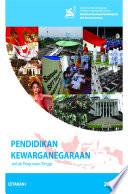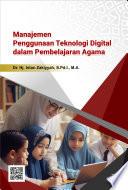
Pendidikan Kewarganegaraan untuk Perguruan Tinggi
Buku Wajib Pendidikan Kewarganegaraan untuk Perguruan Tinggi
- ISBN 13 : 6026470026
- ISBN 10 : 9786026470027
- Judul : Pendidikan Kewarganegaraan untuk Perguruan Tinggi
- Pengarang : Paristiyanti Nurwardani (Direktorat Jenderal Pembelajaran dan Kemahasiswaan), Hestu Yoga Saksama (Direktorat Jenderal Pajak), Arqom Kuswanjono (Universitas Gadjah Mada), Misnal Munir (Universitas Gadjah Mada), Rizal Mustansyir (Universitas Gadjah Mada), Encep Syarief Nurdin (Universitas Pendidikan Indonesia), Edi Mulyono (Direktorat Jenderal Pembelajaran dan Kemahasiswaan), Sanityas Jukti Prawatyani (Direktorat Jenderal Pajak), Aan Almaidah Anwar (Direktorat Jenderal Pajak), Evawany (Direktorat Jenderal Pembelajaran dan Kemahasiswaan), Fajar Priyautama (Direktorat Jenderal Pembelajaran dan Kemahasiswaan), Ary Festanto (Direktorat Jenderal Pajak), Hestu Yoga Saksama (Direktorat Jenderal Pajak), Arqom Kuswanjono (Universitas Gadjah Mada), Misnal Munir (Universitas Gadjah Mada), Rizal Mustansyir (Universitas Gadjah Mada), Encep Syarief Nurdin (Universitas Pendidikan Indonesia), Edi Mulyono (Direktorat Jenderal Pembelajaran dan Kemahasiswaan), Sanityas Jukti Prawatyani (Direktorat Jenderal Pajak), Aan Almaidah Anwar (Direktorat Jenderal Pajak), Evawany (Direktorat Jenderal Pembelajaran dan Kemahasiswaan), Fajar Priyautama (Direktorat Jenderal Pembelajaran dan Kemahasiswaan), Ary Festanto (Direktorat Jenderal Pajak), Hestu Yoga Saksama (Direktorat Jenderal Pajak), Arqom Kuswanjono (Universitas Gadjah Mada), Misnal Munir (Universitas Gadjah Mada), Rizal Mustansyir (Universitas Gadjah Mada), Encep Syarief Nurdin (Universitas Pendidikan Indonesia), Edi Mulyono (Direktorat Jenderal Pembelajaran dan Kemahasiswaan), Sanityas Jukti Prawatyani (Direktorat Jenderal Pajak), Aan Almaidah Anwar (Direktorat Jenderal Pajak), Evawany (Direktorat Jenderal Pembelajaran dan Kemahasiswaan), Fajar Priyautama (Direktorat Jenderal Pembelajaran dan Kemahasiswaan), Ary Festanto (Direktorat Jenderal Pajak), Hestu Yoga Saksama (Direktorat Jenderal Pajak), Arqom Kuswanjono (Universitas Gadjah Mada), Misnal Munir (Universitas Gadjah Mada), Rizal Mustansyir (Universitas Gadjah Mada), Encep Syarief Nurdin (Universitas Pendidikan Indonesia), Edi Mulyono (Direktorat Jenderal Pembelajaran dan Kemahasiswaan), Sanityas Jukti Prawatyani (Direktorat Jenderal Pajak), Aan Almaidah Anwar (Direktorat Jenderal Pajak), Evawany (Direktorat Jenderal Pembelajaran dan Kemahasiswaan), Fajar Priyautama (Direktorat Jenderal Pembelajaran dan Kemahasiswaan), Ary Festanto (Direktorat Jenderal Pajak), Hestu Yoga Saksama (Direktorat Jenderal Pajak), Arqom Kuswanjono (Universitas Gadjah Mada), Misnal Munir (Universitas Gadjah Mada), Rizal Mustansyir (Universitas Gadjah Mada), Encep Syarief Nurdin (Universitas Pendidikan Indonesia), Edi Mulyono (Direktorat Jenderal Pembelajaran dan Kemahasiswaan), Sanityas Jukti Prawatyani (Direktorat Jenderal Pajak), Aan Almaidah Anwar (Direktorat Jenderal Pajak), Evawany (Direktorat Jenderal Pembelajaran dan Kemahasiswaan), Fajar Priyautama (Direktorat Jenderal Pembelajaran dan Kemahasiswaan), Ary Festanto (Direktorat Jenderal Pajak), Hestu Yoga Saksama (Direktorat Jenderal Pajak), Arqom Kuswanjono (Universitas Gadjah Mada), Misnal Munir (Universitas Gadjah Mada), Rizal Mustansyir (Universitas Gadjah Mada), Encep Syarief Nurdin (Universitas Pendidikan Indonesia), Edi Mulyono (Direktorat Jenderal Pembelajaran dan Kemahasiswaan), Sanityas Jukti Prawatyani (Direktorat Jenderal Pajak), Aan Almaidah Anwar (Direktorat Jenderal Pajak), Evawany (Direktorat Jenderal Pembelajaran dan Kemahasiswaan), Fajar Priyautama (Direktorat Jenderal Pembelajaran dan Kemahasiswaan), Ary Festanto (Direktorat Jenderal Pajak),
- Kategori : Education
- Penerbit : Indonesia Prime
- Bahasa : id
- Tahun : 2016
- Halaman : 342
- Google Book : https://play.google.com/store/books/details?id=Pl3NEAAAQBAJ&source=gbs_api
-
Ketersediaan :
... citizen, citizenship dan citizenship education. Lalu apa hubungan dari ketiga istilah tersebut? Perhatikan pernyataan yang dikemukakan oleh John J. Cogan, & Ray Derricott dalam buku Citizenship for the 21st Century: An International ...









